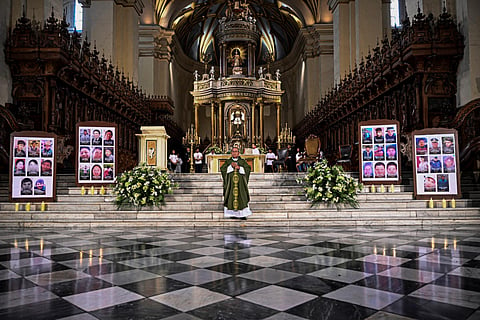Genocide probe against Peru president
When an attorney general launches a genocide probe against his country’s president and cabinet ministers, it could be laudingly read as an indicator of a matured democracy or simply his fallout with the ruling establishment. Or both. Given the flawed democracy that Peru is, where a deadly power struggle since last month has already left over 40 anti-government protesters dead, its top law office appears to have moved to a rebel camp while putting the government on the dock. The nation is convulsing under waves of protests by followers of deposed president Pedro Castillo demanding to snap national polls.
Left-leaning Castillo lost power in December last year after his attempt to dissolve Congress and rule by decree failed. The Congress instead impeached him and elected vice president Dina Boluarte as successor. Castillo has had a running battle with the Congress, whose two earlier attempts to impeach him had failed, hence his disastrous self-coup in December. He was arrested immediately and sentenced to 18 months of pre-trial detention. Yet, he has managed to lead the rebellion from prison.
To curb street violence by Castillo’s supporters, the new government gave unbridled powers to the army, which led to firing on protesters and the needless loss of lives. Deploying soldiers for law enforcement with the licence to kill has always ended badly, as the bloody crackdown against the uprising in Sri Lanka last year showed. Besides those killed in Peru’s firing, 355 protesters and 176 police officers were reported injured. Boluarte seems to have misjudged Castillo’s popular grassroots support in the country’s rural south while taking coercive action to crush the agitation. Without a popular mandate, she struggles to come to grips with the law and order situation. While she has refused to resign, her political capital is shrinking as quite a few ministerial colleagues have deserted her. Rejecting Castillo’s call for immediate polls, Boluarte said she is prepared to advance it to April 2024 but not earlier.
Power struggle is not new to Peru. It has had as many as six presidents and three parliaments within the last five years. The country also has the highest Covid death rate in the world. It accentuated livelihood issues and poverty, one reason for the popular anger on the streets. The need of the hour is to restore peace and explore snap polls while withdrawing draconian powers from the armed forces and making democracy work.

